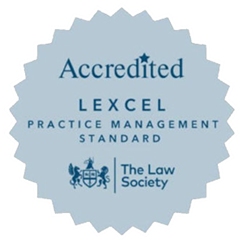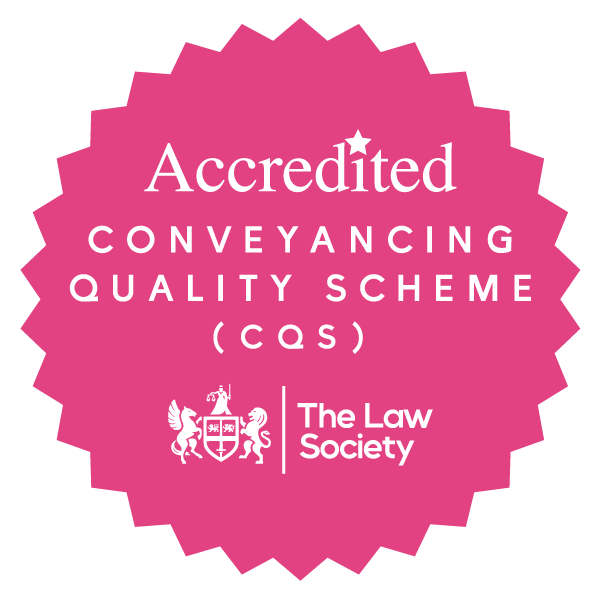Business Sale and Purchase Solicitors in Enfield, North London and Hertfordshire
Whatever the size or type of your business, when crucial decisions have to be taken you will need legal advice you can rely on.
There can be many pitfalls along the way, and having the best team supporting you, can be the difference that makes the difference to achieve a success outcome.
We are a small regional law firm punching above our weight and with plans to rise high. We achieve our goals by helping our clients achieve their goals. If you are looking to buy or sell a business, then our team of specialist commercial lawyers will work with you, to make the deal happen.
Call our experienced commercial solicitors today on 0208 363 4444 or complete our online contact form and we will be in touch with you as soon as possible.
"Curwens have just dealt with selling my business. They could not have been more professional, incredibly efficient and helpful. I can not recommend them highly enough." London-based Client in 2021.
The process
When you are buying or selling a business the process typically involves the following stages:
Heads of terms
The key outcome of the heads of terms is to capture all the major principles to reduce deal problems later down the line. A buyer will usually want to include a period to negotiate exclusively with the seller. A seller will usually want to include confidentiality and non-compete provisions. Importantly, apart from things like exclusivity, confidentiality and non-compete, the heads of terms is not intended to be a binding document. So if the buyer and seller fail to reach a definitive agreement or issues arise under due diligence, either side can walk away.
Due diligence
The due diligence is the process of asking and answering questions. It is an iterative process. You keep asking questions until you are satisfied with the answers and documents provided. Due diligence may be raised by various professionals, including lawyers, accountants, surveyors and tax advisors. On a business purchase, we would typically ask questions around employment, property, supply and customer contracts, compliance with laws, litigation and complaints, known events that may impact the prospects of the business and many more.
Preparation of the sale and purchase agreements and ancillary documentation
All transactions will require a main sale and purchase agreement. This may be called a share purchase agreement or asset purchase agreement depending on whether shares or assets are being purchased. There will also be a range of ancillary documents to accompany the main agreement. For example on a share sale you may have stock transfer forms, director resignation letters, pre-registration power of attorneys and person of significant control change notices. On an asset purchase you may have an assignment of goodwill and intellectual property, contract assignation novations and the landlord licence to assign.
Negotiations and house-keeping
Throughout the transaction process, the various documents will often be amended and re-amended by both sides of the table. Some documents may take a lot longer to conclude because the issues are more complex or reliance is needed on a third party, who is not available and motivated to cooperate. A key principle in enabling a deal to complete efficiently can be how a document is drafted; in particular striking a reasonable balance to limit unnecessary negotiations.
Completion
Completion is the moment when the sale and purchase finally concludes. The seller sells and the buyer buys. The seller hands over responsibility and risk and the buyer pays the price (or the amount payable at completion). The completion process itself is usually a very quick affair. But it is getting to the moment of completion which can take time. Once completion is done, then there is no turning back. A seller can only sell once. A buyer can only buy once. So the time to ensure everything is organised and in place, is typically before completion. A buyer and seller usually want to complete without delay, but taking the requisite time necessary not to proceed until they are happy and ready.
Key issues
Tax and deal structure
There are a number of ways to proceed when buying or selling a business and the deal structure can often be greatly influenced by tax and other considerations. For example, a seller of a business operated through a limited company will often prefer to sell the shares in the company in order for the sale proceeds to be taxed under the more favourable capital gains tax regime. Equally a buyer may prefer buying shares as stamp duty on shares can be less than stamp duty land tax on property. A buyer may also prefer to take over the shares in a limited company, because it keeps everything intact and there is less disruption, but the buyer refuses because there are concerns about the liabilities in the company. When buying shares in a company one of high risk problems, is the concept that all liabilities remain in the company, whether actual or prospective and whether or not known about by the buyer or seller. The risk of the unknown and unquantifiable liability often leads to one of the most negotiated parts of a sale and purchase agreement – namely the warranties and indemnities.
Warranties and indemnities
If the outcome of due diligence is to ascertain what problems may exist with a business before the purchase, then the outcome of warranties and indemnities is to manage how such problems are dealt with. Warranties are statements of fact. For example, the seller will warrant at the time of completion the company has no litigation or the company has complied with all law and regulation. If untrue, then, in theory, a buyer has a right to claim breach of warranty. However, warranties are usually heavily caveated based on the due diligence and knowledge of the buyer. There are also usually considerable financial limitations of liability clauses in the sale and purchase agreement. An indemnity is a different protection compared to a warranty because it operates more like an IOU. For example, the agreement may provide the seller will reimburse the buyer if the company suffers a loss or liability in relation to any claim because the company did not comply with health and safety law. Naturally a buyer may prefer to have a wide range of warranties and indemnities where a seller would not. Hence this area of the sale and purchase can be the most negotiated, time consuming and costly.
Non-compete and restrictive covenants
The main purpose of a business acquisition is for the buyer to obtain control of the goodwill of the business. Goodwill is an intangible asset and protecting it can involve a number of legal techniques. First the seller should be asked not to operate a competitive business for a reasonable period of time typically 2 – 3 years. Second the seller should be asked not to solicit clients, poach staff or interfere with suppliers, again for a reasonable period. The seller should also not operate another business with the same or similar name. If goodwill is important to the deal, then on a practical level, it is important for the buyer to understand and make an assessment of where the goodwill really lies. For example, if a key member of staff has a good relationship with the business customers and leaves the business after completion, the sale and purchase agreement may have the best drafted restrictive covenants, but they still provide no protection. If there are concerns of goodwill loss, then further due diligence may be required to better identify the source more specifically. Further, the sellers could be asked to remain in the business for a number of years to provide a handover or earn-out. Finally, the sale and purchase may also contain price adjuster clauses.
Price adjusters
Unlike the sale and purchase of a property, which tends to hold value for a reasonable period of time, a business value can fluctuate quite significantly and on a day to day basis. A lot of company acquisitions will therefore include a completion accounts process which enables the purchase price to be adjusted sometimes many months after completion, based on the value of the company on the completion day. Price adjusters typically require both legal and tax input as adjustments may be based on specific policies to calculate profit. For example, if the price is to be adjusted based on a normalised level of working capital, then rather than leave to chance what “normal” may actually mean, it would be helpful to include an example simulation in the sale and purchase agreement which has been tested by the buyer and seller’s accountant.
Joint and several liability
If you have a business owned and/or operated by multiple parties a question can often be how you apportion any liabilities between them. A buyer may simple require joint and several liability between all sellers, and then if there are problems, it is down to the sellers to resolve. Equally if you have a seller who holds a very small stake in the business (say an employee shareholder) or a seller who has not been involved in the management of the business, it may be inequitable for such parties to be provide the protection a buyer requires.
Employment
Most businesses have employees and at least some consideration should be provided to how they may be affected. In relation to a share sale of a company, on the face of it, there are no changes to staff contracts and therefore nothing to consult. So far as the employee is concerned they will still be employed by the same company, it is only the owner which changes. For an asset sale, the Transfer of Undertakings (Protection of Employment) Regulations 2006 will automatically transfer staff liabilities to the buyer by way of a statutory novation. For most business sales with staff there will usually need to be a basic informing and consultation process, but the specific process will vary based on the number of employees.
Simultaneous or non-simultaneous exchange and completion
When buying and selling a home, typically the sale and purchase agreement is non-simultaneous allowing an average 2 – 4 weeks between exchange and completion. The contract is typically binding at the point of exchange unless there is a material adverse event such as the house being destroyed. On a sale and purchase of a business there tends to be much more variability depending on the specific requirements of the deal. Sometimes a buyer will want to commit the seller to selling as quickly as possible, but not want to commit to buying until a certain condition has been satisfied. If so, then between exchange and completion the sale and purchase agreement should provide for how the business will be managed. For example the seller should carry on the business in the same way without major changes. It can be quicker and cheaper for a buyer to proceed with a simultaneous exchange and completion, but there are trade-offs. It may take longer to procure a completion deliverable is obtained quickly enough and before any heads of terms exclusivity expires. Moreover, a seller may not want to exchange on a contract which provides a buyer an easy exit.
We can help you
If you buying a business or buying a company or selling a business or selling a company, we are here to help.
Contact our Commercial Lawyers in Enfield, Finchley, North London and Hertfordshire today
Call us today or complete our online contact form and one of our team will be in touch to discuss your matter further.





















